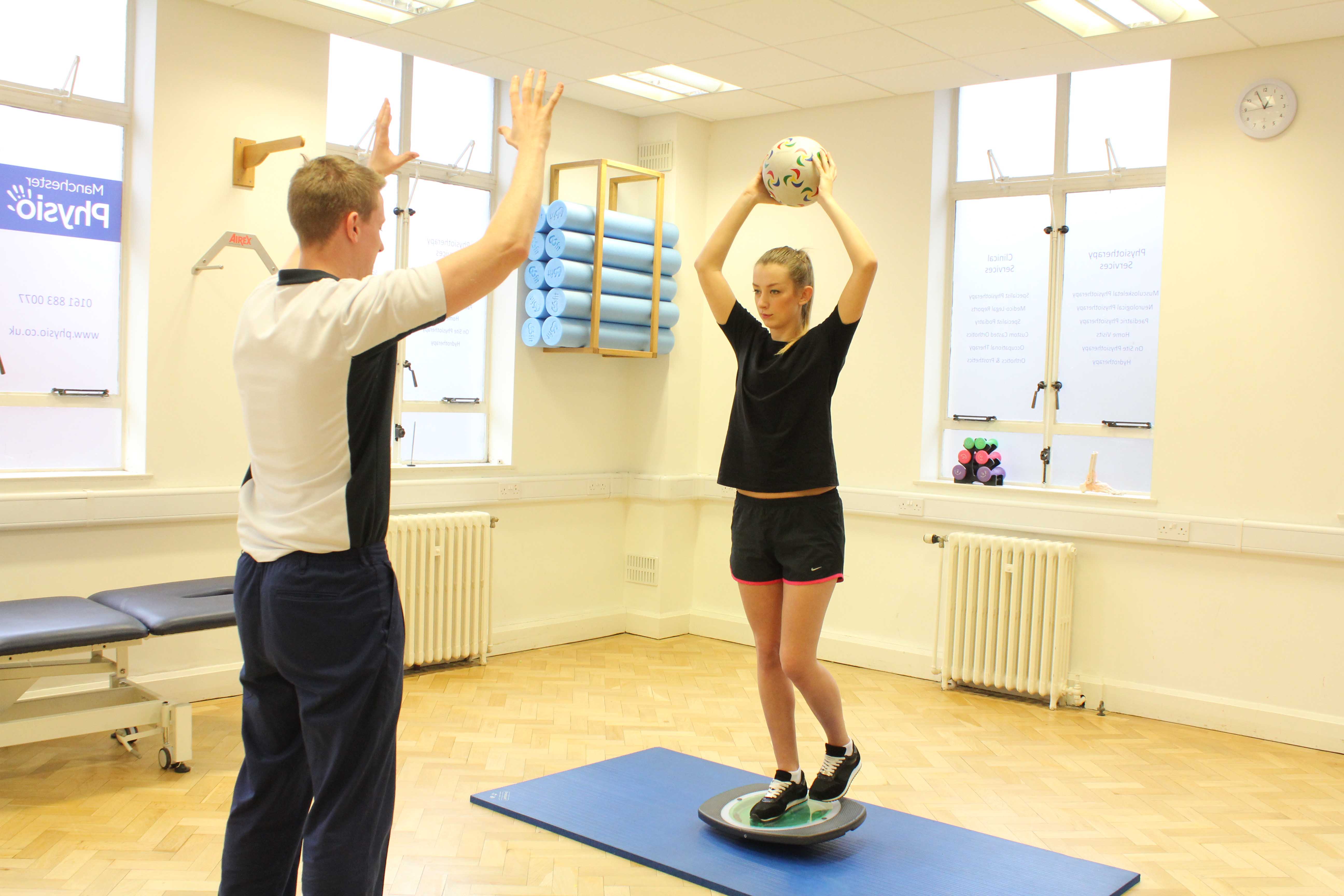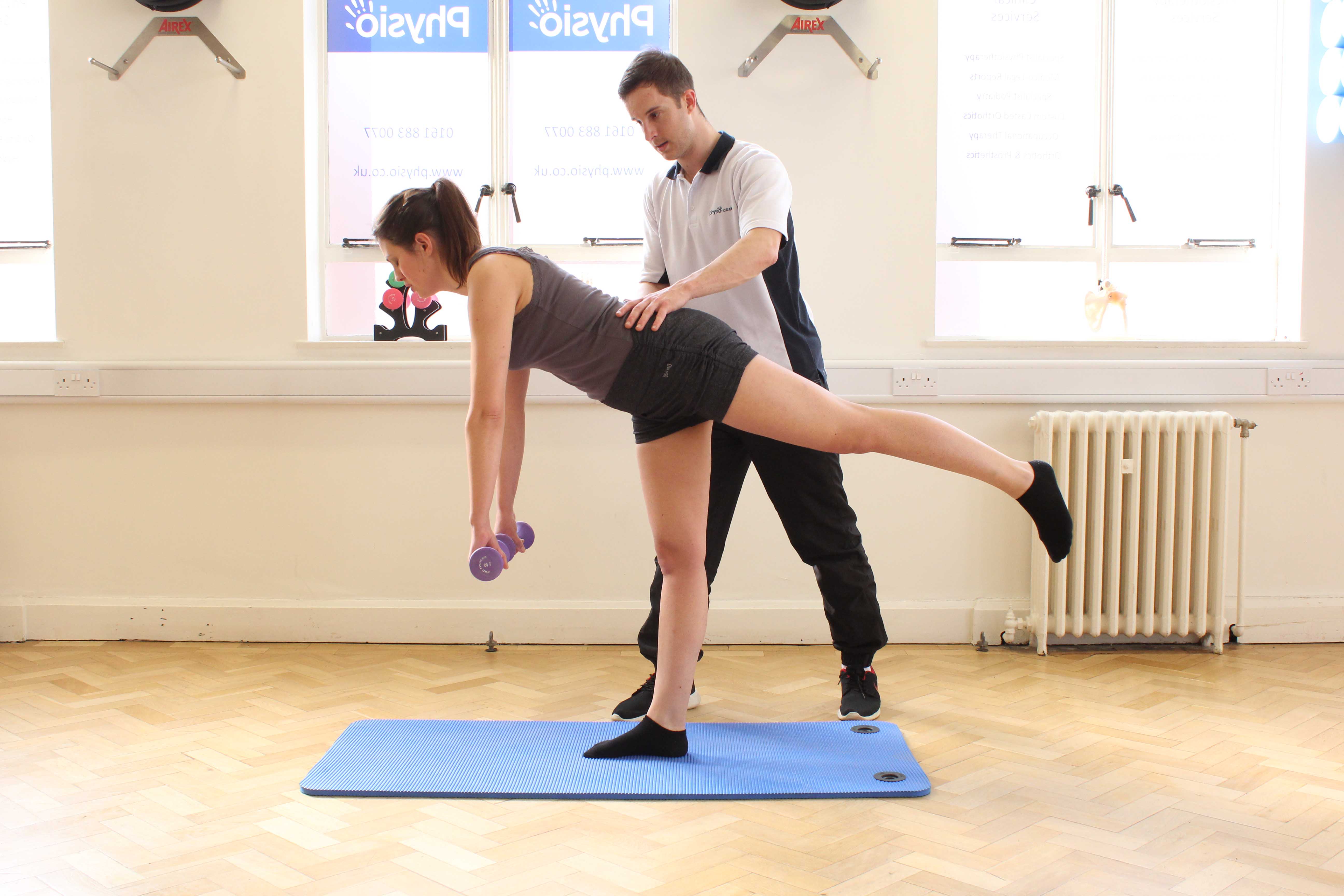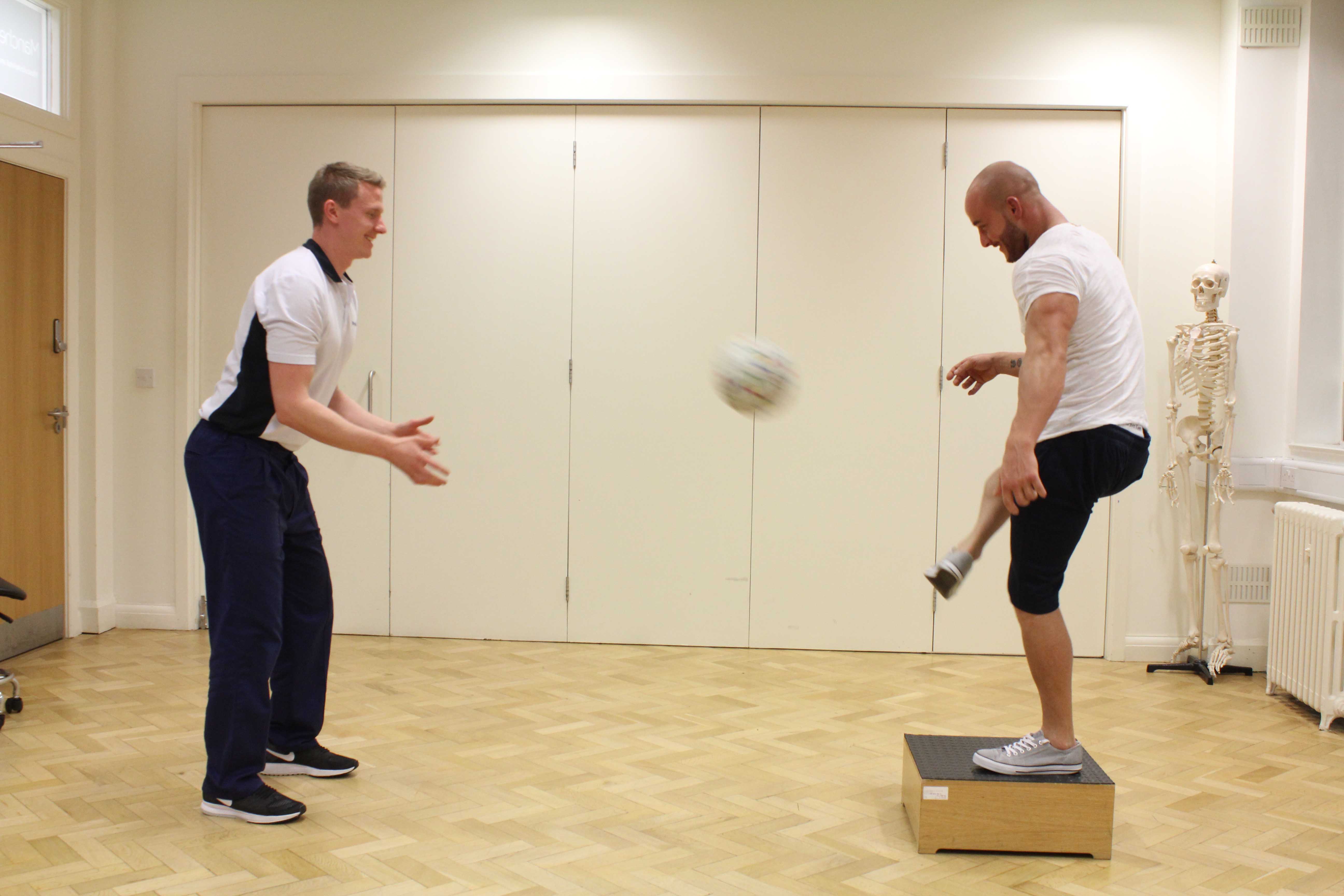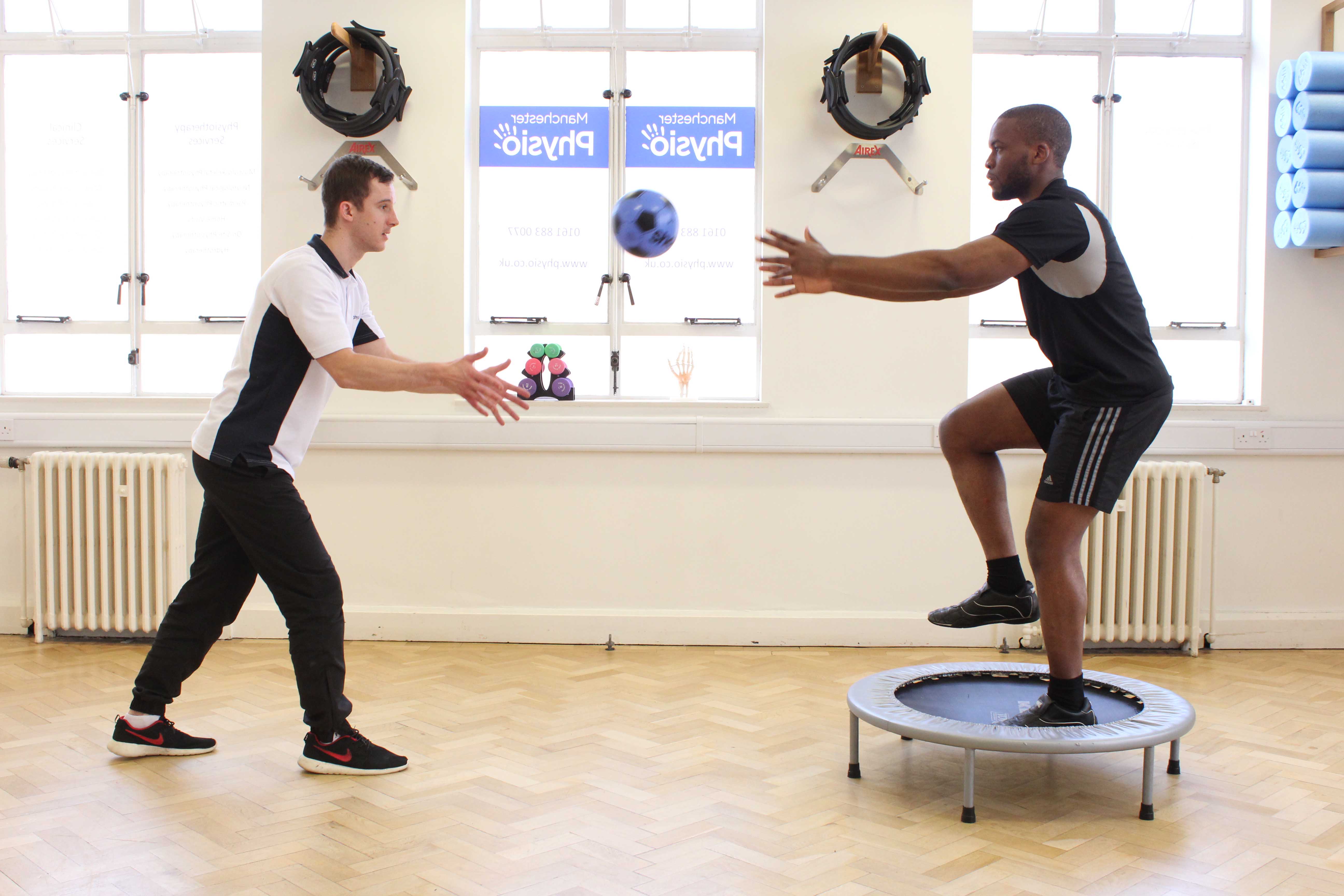What are Balance Problems?
Balance problems are when a person cannot maintain their balance within their centre of gravity. This can result in a visual postural sway. Some of the symptoms and feelings which can be associated with balance problems are:
- Dizziness
- Wobbly
- Light headed
- Spinning
- Unsteady
- Floating
- Woozy
 Above: Balance exercises supervised by experienced musculoskeletal Physiotherapist
Above: Balance exercises supervised by experienced musculoskeletal PhysiotherapistComponents of Balance
The main components of balance are:
- Visual– The visual system is a key part to an individual being able to maintain balance, although can be established without. The visual system provides the brain with visual feedback and information on where the body is in space. This works with the vestibular and proprioception systems.
- Vestibular – The vestibular system is found within the inner ear. This system works with the visual system to allow the individual to focus on objects whilst moving. Movement of the fluid within the inner ear provides the brain with information on the speed and direction of the movement the body is making.
- Proprioception– Proprioception provides feedback to the brain from every part of the body. This enables the brain to establish a picture of where the body is in space. This combined with the visual and the vestibular systems enables the body to establish and maintain balance.
- Musculoskeletal system– This is an essential component for establishing and maintaining balance, as the muscles, bones, joints and ligaments are needed in order to maintain a stable posture above the centre of gravity.
 Above: Balance and toning exercises supervised by experienced musculoskeletal Physiotherapist
Above: Balance and toning exercises supervised by experienced musculoskeletal PhysiotherapistWhat causes balance problems?
There are many potential causes that lead to problems with balance. Any disorder of the vestibular, visual, proprioceptive and musculoskeletal systems can affect a person’s balance. Some of the causes of balance problems can include:
- Infection within the ear
- Head injury
- The aging process
- Decreased mobility
- Visual deficits – deteriorating sight, blindness
- Circulatory conditions (blood pressure)
- Medication
- Joint injury
- Vertigo
How can Physiotherapy help with balance Problems?
Physiotherapists can provide a thorough assessment and provide a diagnosis with an appropriate treatment plan. It takes time to improve balance and can have potential risks if not supervised and professional instructions are not followed. Physiotherapy can help improve balance through:
- Environmental advice
- Exercises to challenge balance
- Progression of exercise programmes to improve balance
- Coaching strategies
- Signpost for medication reviews
- Musculoskeletal treatments
- Referral to an optician
 Above: Dynamic balance and co-ordination exercises assisted by an experienced Physiotherapist
Above: Dynamic balance and co-ordination exercises assisted by an experienced PhysiotherapistWhat types of Physiotherapy treatments can be expected for balance problems?
There are a few different treatments available aimed at improving a person’s balance. Some of the treatments used may include:
- Balance exercises
- Proprioceptive exercises
- Mobility over different terrain
- Advice
- Walking aid provision
- Vestibular Rehabilitation
 Above: Dynamic balance and co-ordination exercises assisted by an experienced Physiotherapist
Above: Dynamic balance and co-ordination exercises assisted by an experienced PhysiotherapistSummary
Poor balance can increase the risk of falls. In the elderly population his can increase the risk of fractures and other serious injuries. Treatment is aimed at challenging balance, which can potentially have risks therefore should be done under the supervision of a qualified experienced physiotherapist from Physio.co.uk. This can decrease the potential risk of falls whilst benefiting the client. Please contact us or call 0330 088 7800 to arrange an appointment.

 0330 088 7800
0330 088 7800

































